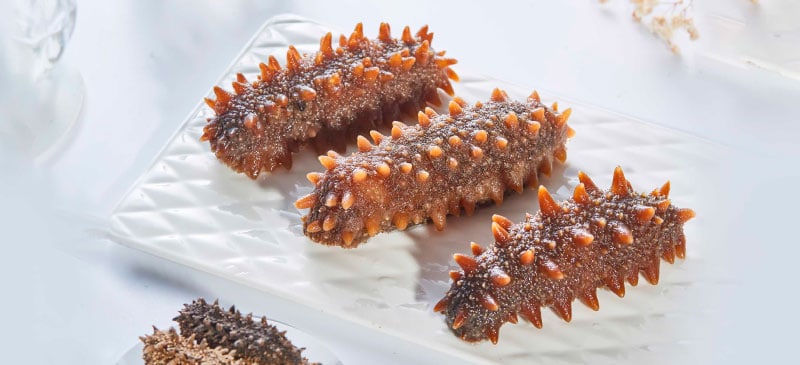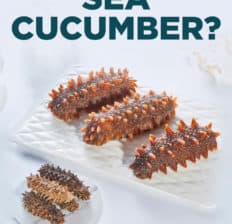This Dr. Axe content is medically reviewed or fact checked to ensure factually accurate information.
With strict editorial sourcing guidelines, we only link to academic research institutions, reputable media sites and, when research is available, medically peer-reviewed studies. Note that the numbers in parentheses (1, 2, etc.) are clickable links to these studies.
The information in our articles is NOT intended to replace a one-on-one relationship with a qualified health care professional and is not intended as medical advice.
This article is based on scientific evidence, written by experts and fact checked by our trained editorial staff. Note that the numbers in parentheses (1, 2, etc.) are clickable links to medically peer-reviewed studies.
Our team includes licensed nutritionists and dietitians, certified health education specialists, as well as certified strength and conditioning specialists, personal trainers and corrective exercise specialists. Our team aims to be not only thorough with its research, but also objective and unbiased.
The information in our articles is NOT intended to replace a one-on-one relationship with a qualified health care professional and is not intended as medical advice.
What Is a Sea Cucumber & Can You Eat It?
January 7, 2023

Sea cucumber is considered a delicacy in some Asian and Middle Eastern cultures. It is farmed commercially or gathered on ocean floors by divers because of the culinary value and uses in traditional folk medicine.
Despite their name, sea cucumbers are not vegetables, but marine animals that live on the seafloor. They are shaped like fat cucumbers and have a chubby, worm- or slug-like appearance that can grow to anywhere from three-quarters of an inch to six feet long.
They can be found in oceans across the globe, especially in the Pacific Ocean, usually buried partially in the sand.
For centuries, sea cucumber has been used as a medicinal food for a variety of ailments, including treating infections, healing wounds and improving heart health.
What Is Sea Cucumber?
Sea cucumber, also known as trepang, beche-de-mer or gamat, is consumed fresh and dried in various Asian and Middle Eastern dishes. Fresh sea cucumber has a soft and slimy texture, with a flavor that’s described as bland or boring, which is why it’s often added to well-seasoned recipes with flavorful ingredients.
Dried sea cucumber is commercially sold and the more popular form of the marine animal. It is added to stews, soups and other recipes.
Topical creams and ointments made with compounds extracted from sea cucumber are also used for their healing and anti-inflammatory properties, and tonics are made for therapeutic ingestion.
In traditional medicine, it is used for wound healing, fighting infections, relieving asthma and easing constipation. It’s also valued for its potential antitumor, anti-inflammatory, anticoagulant and neuroprotective effects.
Nutrition Facts
Research shows that sea cucumber is a good source of high-value compounds with therapeutic properties, including vitamins, minerals, fatty acids, amino acids, bioactive peptides and carotenoids.
According to Pacific Sea Cucumber Harvesting (PSCHA), 112 grams (4 ounces) of raw sea cucumber contains approximately:
- 60 calories
- 14 grams protein
- Less than one gram fat
- 81 percent DV vitamin B2 (riboflavin)
- 22 percent DV vitamin B3 (niacin)
- 8 percent DV vitamin A
- 4 percent DV magnesium
- 3 percent DV calcium
Sea cucumbers are low in fat and high in protein, with most species made up of 41 percent to 63 percent protein, according to PSCHA.
Sea Cucumber Benefits
The many benefits of sea cucumber comes from its impressive nutrition profile and therapeutic compounds, including antioxidants, fatty acids and amino acids.
The top benefits include the following:
1. Rich in Antioxidants
Like nutritious seaweed, researchers have found considerable amounts of free radical scavengers in sea cucumber, particularly the phenols and flavonoids that are present in the marine animal. Several studies show that raw and dried sea cucumber has impressive antioxidant activity. There are factors that impact its antioxidant effects, however, including the species, harvesting location and body part.
2. Good Source of Amino Acids
Sea cucumber contains a combination of valuable amino acids, including glycine, glutamic acid, aspartic acid, alanine and arginine. Research indicates that because of the animal’s amino acid components, it has a remarkable function in immune regulation, collagen production and connective tissue health.
3. Aids Wound Healing
The lipids in sea cucumbers can play a role in tissue repair and wound healing. The fatty acids myristic, palmitic, stearic, linoleic and others are present and can be extracted to make topical ointments for wounds.
4. Eases Pain
Compounds found in sea cucumber, notably chondroitin sulfate, are used to ease joint pain and pain from conditions like arthritis. In traditional medicine, eating dried sea cucumber is used to alleviate pain and reduce inflammation, easing symptoms of osteoarthritis and other disorders.
5. Potential Anti-Tumor Effects
Sea cucumber has been studied for its potential anti-tumor and anticarcinogenic effects. In studies involving mice, the compounds in it inhibited cancer growth and migration.
Lab studies also display cancer-fighting properties in the marine animal as well.
6. Fights Infections
Studies reveal that sea cucumber has antibacterial and antifungal properties, due, in large part, to the presence of compounds such as steroidal sapogenins. Other marine echinoderms, such as the common starfish and green sea urchin, have been studied for their comparable antimicrobial effects.
7. Reduces Fatigue
This marine animal has been show to possess anti-fatigue compounds when tested on mice. When mice were given oral sea cucumber, their loading swimming time was prolonged compared to the control group. Researchers also found that the blood lactic acid content of mice given sea cucumber was significantly decreased, which can impact muscle fatigue and soreness.
8. Boosts Heart Health
Research on rats shows that sea cucumber may work to reduce blood pressure and improve cholesterol levels by lowering LDL cholesterol and triglycerides.
Risks and Side Effects
Research on sea cucumber, especially for serious conditions such as cancer and heart disease, is limited and typically involving rodents, not humans. Speak to your health care provider if you’re considering using the marine animal for medicinal purposes.
People taking blood thinners should consult with their doctors before using sea cucumber therapeutically because it may have anticoagulant properties. People with a shellfish or seafood allergy should also use caution when eating sea cucumber because of the possibility of cross-contamination, especially with commercial dried products.
Due to the popularity of sea cucumber, some species of the sea animals are overfished from the ocean floor and threatened with extinction. Farmed sea cucumbers are also in demand, but, like farmed shrimp, may not provide the cleanest products.
If you’re using sea cucumber, consider getting it from a sustainable fishery that uses humane and organic methods.
Conclusion
- Sea cucumber is considered a delicacy. It’s consumed fresh and dried in Asian and Middle Eastern cuisines.
- It has also been used for centuries in traditional medicine for ailments such as infections, liver issues and digestive problems.
- Today, it is being studied for its benefits related to heart disease, cancer, inflammatory pain and liver disease.
- Most studies on the marine animal have been conducted on rodents, so human evidence is needed to consider sea cucumber an effective and safe medicinal food.





